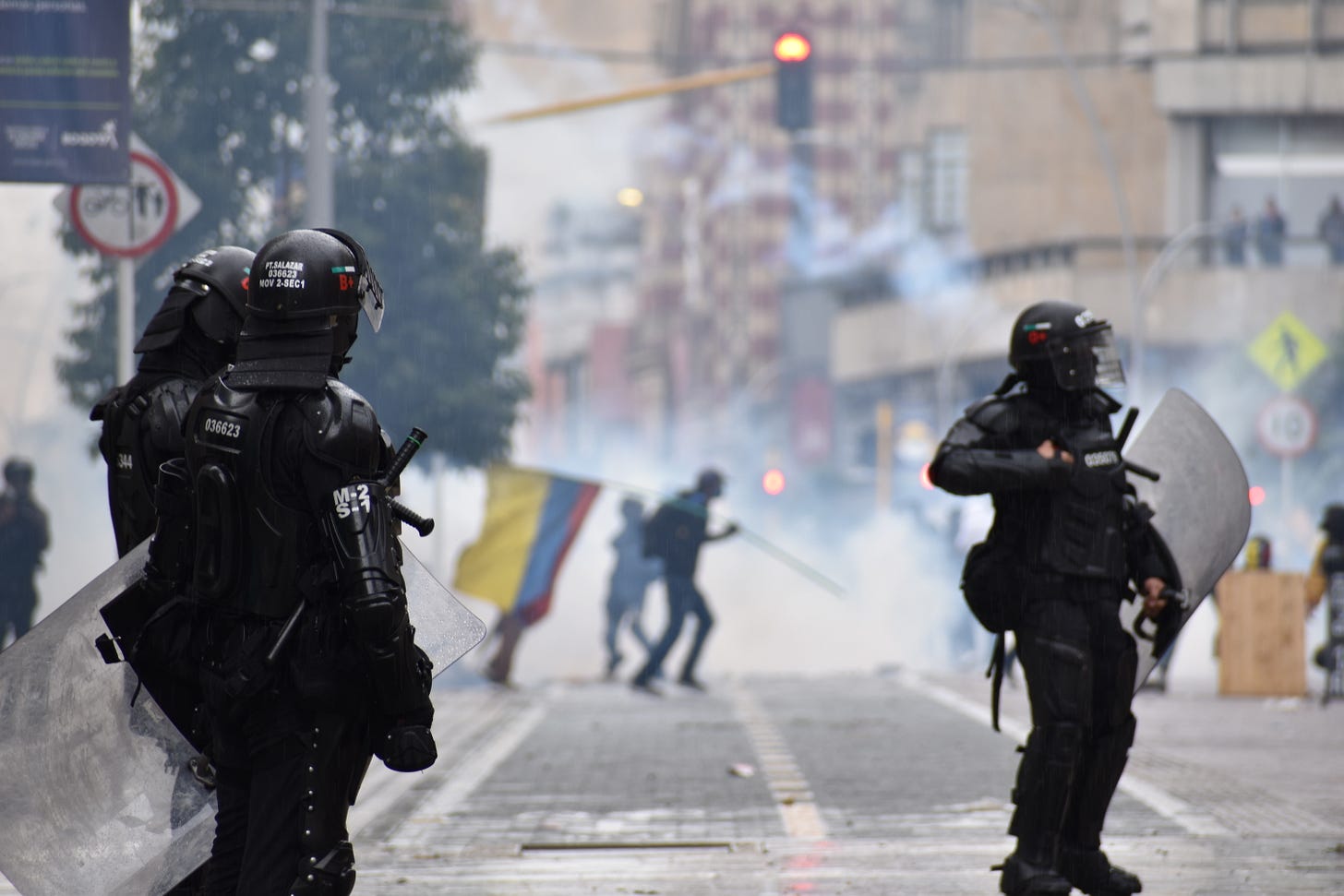Avast, me hearties!
I don’t know about you but we’re greeting the weekend like a marooned man greets a passing ship.
Before we get onto the news, there’s a brief update. For the past three months, we’ve been sending you a weekly podcast episode on everything from crypto-ponzi schemes in Argentina to migrants at the US-Mexico border. But creating high-quality reported audio journalism is complex and time-consuming. Podcasts by major media companies are often the work of a team of people, but we often produce ours on our own, in addition to our day jobs, with a little voiceover assistance from our co-pirates.
To give the Pirate Wire Services podcast the love and care it deserves, we’re going to try releasing the podcast in seasons: instead of publishing short weekly updates, after today the podcast will take a two-month break while we work on a season to be released in September, for our one-year anniversary. Until then, we’ll keep sending out the newsletter, with extra written stories to make up for the lack of a podcast.
Don’t forget: if you’ve been enjoying our work, paid subscriptions start from just US$5 per month!
For this week’s podcast episode, Josh takes a look at the new report from the Colombian truth commission., which has created waves for it’s finding on the civil war, and had powerful ramifications for the current administration.
“If you wanted a business competitor gone, all you had to do was talk with the paramilitaries sipping coffee at a Bogotá mall. If you lost a ton of cocaine to the police, they could it back for you,” said the report over connections between the government and armed groups.
We explore that and more in the podcast linked above!
Stories we’re watching:
The government of Ecuador and leaders of indigenous groups reached an agreement yesterday to end the national strike in protest against the economic measures of right-wing president Guillermo Lasso. Initially triggered by rising fuel prices, the strikes began on 13 June, and involved widespread roadblocks. The demonstrations were led by the Confederation of Indigenous Nationalities of Ecuador (Conaie) and left at least 6 dead and around 500 injured, including protesters and police officers. A key point of the agreement was a $0.15 per gallon reduction in the price of subsidized fuels (Ecuador uses the US dollar). Initially, the indigenous groups demanded a $0.40 reduction.
In Colombia, at least 51 prison inmates have died and dozens have required medical attention after a riot in a prison in the city of Tuluá, in the Cauca Valley department. According to the prison director, most of the victims lost their lives after inhaling smoke from a large fire caused by the burning of mattresses during the riot. Outgoing Colombian President Iván Duque lamented the deaths, described the event as a "terrible situation", and expressed his solidarity with the victims’ families. President-elect Gustavo Petro echoed these sentiments and pointed out that "the Colombian State has viewed prison as a space for revenge and not for rehabilitation." He added that these events "force a complete rethinking of prison policy."
Brazilian President Jair Bolosnaro announced on Monday his intention to offer political asylum to former Bolivian interim president Jeanine Áñez. She was sentenced to 10 years in prison for violating the constitutional order by proclaiming herself president in 2019, after controversial electoral fraud allegations, violent protests and loss of military and police support forced the resignation of incumbent president Evo Morales. Bolsonaro reportedly discussed the issue with other Latin American leaders and has stated that he will follow through with the asylum if the Bolivian government agrees. However, the Bolivian Minister of Foreign Affairs on Tuesday described the Brazilian president's offer as "impertinent", adding: “[his comments] interfere inappropriately in internal affairs, they do not respect the forms of relations between states and they do not coincide with the relations of good neighborliness and mutual respect between Brazil and Bolivia."
On Monday, the bodies of 48 people and 16 others in a critical condition were found in and around a truck in the city of San Antonio, Texas. Five more individuals died over the next two days. The victims were mostly Mexican and Central American migrants attempting to reunite with loved ones or seek a better life in the United States. At least five of the 67 trafficked passengers were minors. According to the investigations, it is the deadliest case of human trafficking in recent US history. Investigations are still under way, but the migrants had been transported with no water or ventilation in temperatures of up to 40°C. Currently, the driver Homero Zamorano and three other Mexican citizens are being prosecuted in court for the deaths of the migrants.
What we’re reading:
On Colombia’s Truth Commission Report: this long read, this podcast, and this blogpost (a few years old but still good) on differing attitudes towards the FARC and paramilitary groups.
The US is sending officials to Venezuela for more talks - to understand the context on that, check out our recent podcast episode about whether the States would start buying Venezuelan oil again
What we’re writing:
Ex-FARC women search for the disappeared in Colombia, by Daniela and Josh for NACLA
Spanish words of the week
dominadas (fpl) - pull-ups. Amy’s hand-stands teacher was talking about “dominadas” for breakfast and she assumed it might be some kind of pastry. Boy, was she in for a surprise.
zarandear (verb, transitive) - to shake. But not like a pisco sour. A person. And not usually in a good way.
Noticias castellanas
El gobierno de Ecuador y los líderes de grupos indígenas llegaron ayer a un acuerdo para poner fin al paro en protesta contra las medidas económicas del presidente derechista Guillermo Lasso, las cuales se iniciaron el pasado lunes 13 de junio e implicaron el bloqueo de rutas. Las manifestaciones estuvieron encabezadas por la Confederación de Nacionalidades Indígenas de Ecuador (Conaie) y dejaron un saldo de al menos 6 muertos y alrededor de 500 heridos entre protestantes y agentes policiales. Entre los puntos acordados por ambas partes, el más relevante es el relacionado con el precio del combustible, unas de las principales causas de las manifestaciones. Al respecto, el gobierno acordó una rebaja de 15 centavos de dólar por galón para los combustibles subsidiados. En un inicio, los grupos indígenas demandaban una reducción de 40 centavos.
Al menos 51 reclusos fallecieron y varias decenas ha requerido atención médica tras un motín ocurrido en una prisión en la ciudad de Tuluá, en el departamento colombiano del Valle del Cauca. Según el director de la prisión, la mayoría de las víctimas perdieron la vida por inhalación de humo producido por un gran incendio ocasionado por la quema de colchones en medio del motín. El presidente de Colombia, Iván Duque, lamentó las muertes, calificó el hecho como una “terrible situación” y expresó su solidaridad con las familias de las víctimas. Además de expresarse en la misma línea, el presidente electo, Gustavo Petro, señaló que “el Estado colombiano ha mirado la cárcel como un espacio de venganza y no de rehabilitación”. Añadió que este hecho “obliga a un replanteamiento completo de la política carcelaria”.
El presidente de Brasil, Jair Bolosnaro, anunció el lunes su intención de ofrecer asilo político a la exmandataria de Bolivia Jeanine Áñez. Ella fue condenada a diez años de cárcel por haber violado el orden constitucional al autoproclamarse presidenta en 2019, luego de que las fuerzas armadas y policiales obligaran la renuncia de Evo Morales. Bolsonaro habría conversado sobre el tema con otros líderes latinoamericanos y ha manifestado que efectuará el asilo siempre y cuando el Gobierno de Bolivia esté de acuerdo. Sin embargo, el ministro de Relaciones Exteriores del país altiplánico calificó de “impertinente” la oferta del presidente brasileño. “[Sus declaraciones] son absolutamente impertinentes, hacen una inapropiada injerencia en asuntos internos, no respetan las formas de relacionamiento entre estados y no coinciden con las relaciones de buena vecindad y respeto mutuo entre Brasil y Bolivia”, cuestionó el martes.
Un camión con 48 personas fallecidas y otras 16 moribundas fue hallado el lunes en la ciudad de San Antonio, Texas. Dos días después, las víctimas ascendieron a 53. Según las investigaciones, se trataría del caso de tráfico de personas más mortífero en la historia reciente de los Estados Unidos. Las víctimas, que estuvieron sometidas a condiciones de encierro y altas temperaturas, son de nacionalidades mexicana, hondureña, guatemalteca y salvadoreña. Además, se informó que al menos cinco de los 67 pasajeros traficados eran menores de edad. Actualmente, el chofer Homero Zamorano y otros tres ciudadanos mexicanos están siendo procesados en tribunales por la muerte de los migrantes.












